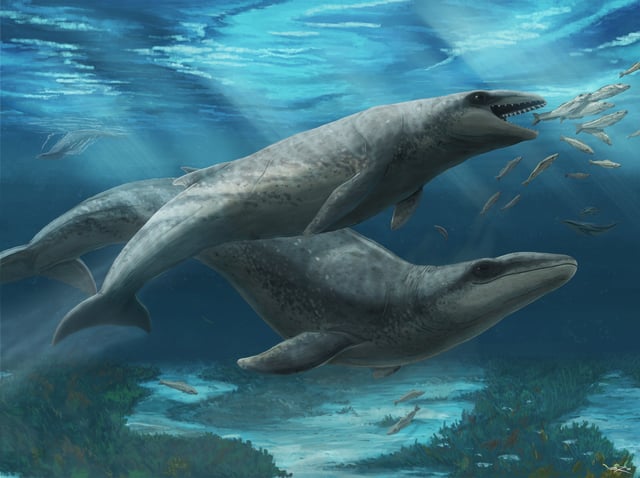Overview
- Janjucetus dullardi is the fourth mammalodontid species known worldwide and the third discovered in Victoria, based on a juvenile skull donated by finder Ross Dullard.
- Analysis of the 2–2.2 m specimen shows large forward-facing eyes, a short snout and eight slicing teeth adapted for active predation.
- MicroCT scans of inner-ear anatomy, including the cochlea, provided data on sensory capabilities crucial for hunting in Oligocene seas.
- Publication in the Zoological Journal of the Linnean Society formalizes the species name and underscores the Jan Juc Formation’s significance as an Oligocene marine fossil hotspot.
- Researchers plan further study of this and other finds to map the transition from toothed mysticetes to modern filter-feeding whales.

